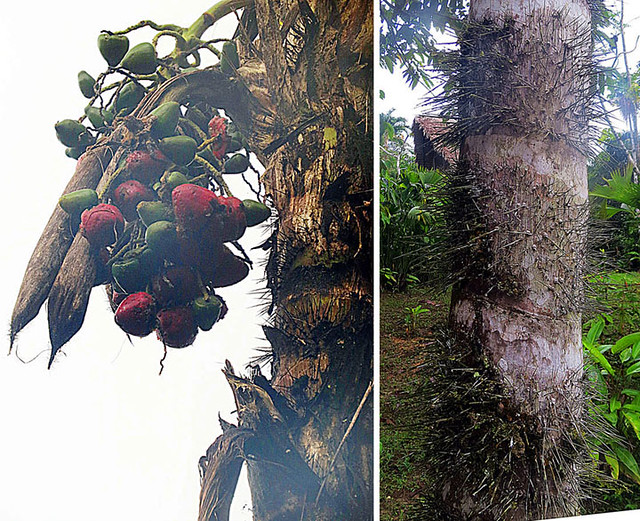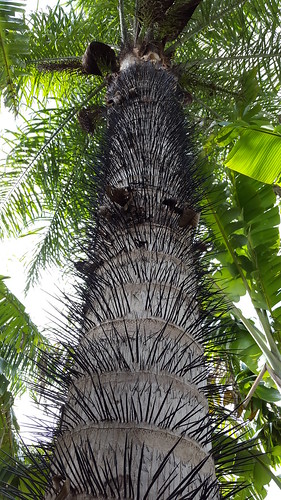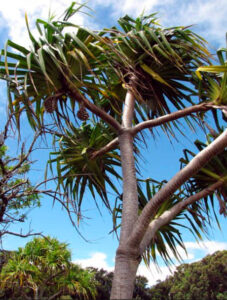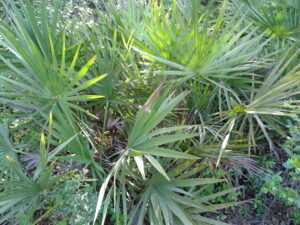Prickly, Spiky, Saw-Tooth Palms
Palms are a type of evergreen plant classified by their branchless stems and large showy fronds. Most people like them for their tropical ornamental appeal or palm products, like coconuts and dates. But many palm trees have a naturally spiny trunk, while others have even more wicked details. These are our top picks for a defensive landscape.
- Peach palm
- Macaw palm
- Madagascar screw pine
- Saw palmetto

Peach palm (Bactris gasipaes) is a fruit-producing palm tree with clusters of red palm fruits. The spiny tree has circular bands of thorns around the brownish-gray trunk. Peach palms grow to about 66′ tall, and the thorny tree has spiky crowns of pinnate fronds stretching 10′.

Macaw palm (Aiphanes minima) aka Devils Palm is a very spiky palm native to the Caribbean. The single brown trunk is covered with 4-inch long black spines. The leaf stems are covered with black spines, and the upper side of the leaf is covered with 1/2 inch long spines. This palm produces white flowers that develop into small red fruit. This tree is named after the hyacinth macaw, a South American parrot, that consumes the nuts.
Note: See also Acrocomia aculeata species native to many parts of tropical America. Other common names: gru-gru (English); totai (Bolivia); bocaiúva, coco-baboso, coco-catarro, coco-de-espinho, macaiba, macajuba, macauba, macauva, mucaja, mucajuba (Brazil); corozo, tamaco (Colombia); coyol (Costa Rica); corosse (Haiti); coyol (Mexico); corozo (Venezuela).

Madagascar screwpine (Pandanus Utilis) is a palm tree popular in Florida and California. It has spines or sharp edges, and falling leaves can be extremely dangerous. Use caution when handling as this plant may cause skin irritation or allergic reaction. Requires a lot of space, and heavy shedding can require high maintenance.

Saw palmetto (Serenoa repens) is a shrub-like evergreen palm that grows 2 to 8 feet tall. Despite its popularity in beauty regimens and cancer treatment, the prickly leaves and sharp stems of this Florida shrub can be a nuisance to unwanted predators. The radial blades have sharp, toothy edges, and the stems have saw-toothed edges for which the plant was named.
Washingtonian desert sand palm

